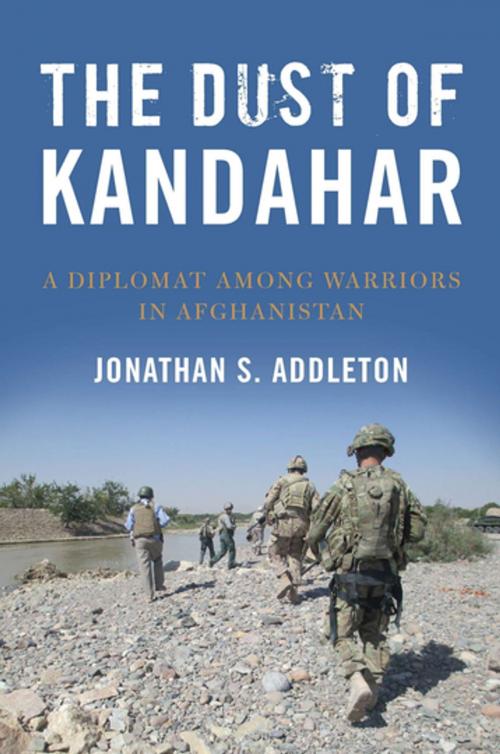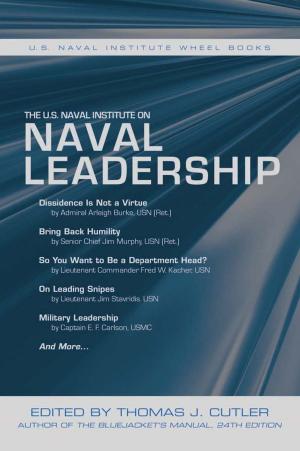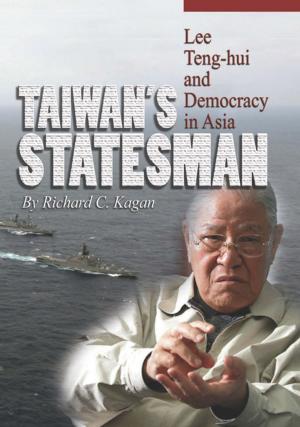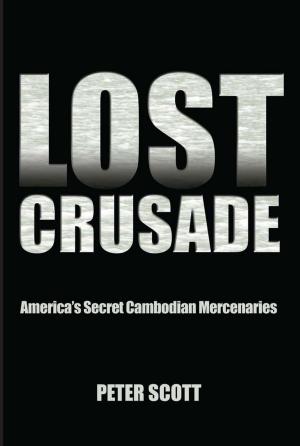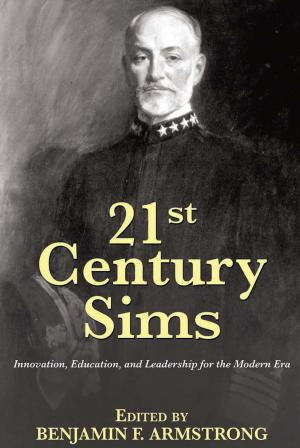The Dust of Kandahar
A Diplomat Among Warriors in Afghanistan
Nonfiction, Social & Cultural Studies, Political Science, International, International Relations| Author: | Jonathan S. Addleton | ISBN: | 9781682470800 |
| Publisher: | Naval Institute Press | Publication: | November 15, 2016 |
| Imprint: | Naval Institute Press | Language: | English |
| Author: | Jonathan S. Addleton |
| ISBN: | 9781682470800 |
| Publisher: | Naval Institute Press |
| Publication: | November 15, 2016 |
| Imprint: | Naval Institute Press |
| Language: | English |
The Dust of Kandahar represents a unique contribution to USNI’s growing number of books on the conflict in Afghanistan, largely because it views events primarily from a civilian perspective. Attached to the Third Infantry Division based in Kandahar during its year-long deployment in southern Afghanistan, the author served as a link between the Embassy in Kabul and military leaders in Regional Command-South (RC-South). He was also heavily involved in outreach aimed at Afghan government officials, tribal and religious leaders and others during a time of transition marked by a significant drawdown in the size of the international military presence across the country.
Few such books view the war through a civilian lens and even fewer forego the usual political or policy analysis to instead focus on the human dimensions of it. By taking this approach, the author advances the USNI’s mission of presenting alternative perspectives, in this case one that adopts a literary approach to advance a deeper professional understanding of the conflict. In effect, it complements the various military memoirs by offering a civilian perspective; and it complements the more detailed military, political and policy assessments by examining the interior lives of those directly involved, reflecting instead on the human costs of war.
Emerging as one of the most important post 9/11 battle zones, US engagement in Afghanistan has become an important part of the country’s national defense strategy over the last decade and a half. While the international presence has significantly diminished during the last couple of years, Afghanistan remains an area of interest and concern. Even as the United States faces growing challenges in other parts of the world, a better appreciation for lessons learned” from the Afghan experience will help further our own approach to global issues while also strengthening the national defense.
Finally, the role of civilians in insurgencies and stabilization programs is often not very well understood; this book will help fill that gap.
Few such books view the war through a civilian lens and even fewer forego the usual political or policy analysis to instead focus on the human dimensions of it. By taking this approach, the author advances the USNI’s mission of presenting alternative perspectives, in this case one that adopts a literary approach to advance a deeper professional understanding of the conflict. In effect, it complements the various military memoirs by offering a civilian perspective; and it complements the more detailed military, political and policy assessments by examining the interior lives of those directly involved, reflecting instead on the human costs of war.
Emerging as one of the most important post 9/11 battle zones, US engagement in Afghanistan has become an important part of the country’s national defense strategy over the last decade and a half. While the international presence has significantly diminished during the last couple of years, Afghanistan remains an area of interest and concern. Even as the United States faces growing challenges in other parts of the world, a better appreciation for lessons learned” from the Afghan experience will help further our own approach to global issues while also strengthening the national defense.
Finally, the role of civilians in insurgencies and stabilization programs is often not very well understood; this book will help fill that gap.
The Dust of Kandahar represents a unique contribution to USNI’s growing number of books on the conflict in Afghanistan, largely because it views events primarily from a civilian perspective. Attached to the Third Infantry Division based in Kandahar during its year-long deployment in southern Afghanistan, the author served as a link between the Embassy in Kabul and military leaders in Regional Command-South (RC-South). He was also heavily involved in outreach aimed at Afghan government officials, tribal and religious leaders and others during a time of transition marked by a significant drawdown in the size of the international military presence across the country.
Few such books view the war through a civilian lens and even fewer forego the usual political or policy analysis to instead focus on the human dimensions of it. By taking this approach, the author advances the USNI’s mission of presenting alternative perspectives, in this case one that adopts a literary approach to advance a deeper professional understanding of the conflict. In effect, it complements the various military memoirs by offering a civilian perspective; and it complements the more detailed military, political and policy assessments by examining the interior lives of those directly involved, reflecting instead on the human costs of war.
Emerging as one of the most important post 9/11 battle zones, US engagement in Afghanistan has become an important part of the country’s national defense strategy over the last decade and a half. While the international presence has significantly diminished during the last couple of years, Afghanistan remains an area of interest and concern. Even as the United States faces growing challenges in other parts of the world, a better appreciation for lessons learned” from the Afghan experience will help further our own approach to global issues while also strengthening the national defense.
Finally, the role of civilians in insurgencies and stabilization programs is often not very well understood; this book will help fill that gap.
Few such books view the war through a civilian lens and even fewer forego the usual political or policy analysis to instead focus on the human dimensions of it. By taking this approach, the author advances the USNI’s mission of presenting alternative perspectives, in this case one that adopts a literary approach to advance a deeper professional understanding of the conflict. In effect, it complements the various military memoirs by offering a civilian perspective; and it complements the more detailed military, political and policy assessments by examining the interior lives of those directly involved, reflecting instead on the human costs of war.
Emerging as one of the most important post 9/11 battle zones, US engagement in Afghanistan has become an important part of the country’s national defense strategy over the last decade and a half. While the international presence has significantly diminished during the last couple of years, Afghanistan remains an area of interest and concern. Even as the United States faces growing challenges in other parts of the world, a better appreciation for lessons learned” from the Afghan experience will help further our own approach to global issues while also strengthening the national defense.
Finally, the role of civilians in insurgencies and stabilization programs is often not very well understood; this book will help fill that gap.
